A look back at the first Réussites Solidaires: working...

Meet Frédéric, Manager of the KEDGE Alumni Branch of Amsterdam
This "Kedge Alumni Travel" Northern European Pro-Act student is currently in Amsterdam, where he is meeting our expatriate graduates.
- CLASS OF: 2016
- POSITION: Sales Lead Collectable
- BUSINESS: Catawiki
- LENGTH OF TIME LIVING ABROAD: 5 years
INTERVIEW:
Hello Frédéric! Please say a few words about yourself.
Hello, my name is Frédéric CAUFRIEZ. I’m originally from Normandy and I’ve lived in Amsterdam for three years. I am a Sales Lead with Catawiki and manager of the Amsterdam Branch of KEDGE Alumni.

What degree did you get at KEDGE?
After two years of taking prep classes, I enrolled in the Master in Management Grande Ecole (PGE) at KEDGE BS in Marseille. While there, I was a member of two associations: “Voiles de KEDGE” (the sailing club) - with which I took part in two EDHEC Sailing Cups, and SimONU - with which I went to New York two times to represent the school. These associations gave me the chance to travel, which was a positive thing.
I did three internships during my gap year. My first was in mass distribution with Captain Iglo in Paris for six months. I was a field salesman and sold frozen food in Paris. I don't have very good memories of that experience - neither of the supermarket sector nor the job itself, which I didn't like.
So I turned to a completely different type of internship. As I was passionate about sailing, I applied to Click & Boat, which at the time was a new start-up. It had five employees and was based in the Paris Dauphine incubator. My job was to find boat owners who would rent their boats on our website. It was really very interesting. Both the founders and the team were extraordinary, and I learned a lot from them.
When those two internships ended, I just had to go abroad. I didn't attempt getting an exchange with a partner university because my level of English wasn't that great, but I applied to Business France (the commercial department of French embassies around the world) in Tel Aviv, Israel. That was also a very good experience. My job consisted of convincing French companies, such as wine producers and food manufacturers, to come and set up in Israel and Palestine. My specialisation was in the food sector. The job was made even more interesting because it was very technical due to the standards involved in producing the kosher products that were consumed in those countries.
At the end of that internship, we organised the French gastronomy week in Tel Aviv, which is a very big event and brought a lot of companies. I have very good memories of that internship. Not only the job itself but also culturally because it’s an exciting city. There are lots of things to do, and it’s multicultural and very exotic.
After those three internships, I went back to Marseille for six months to finish my Master 2 and to validate all the electives I was missing.
What is your best memory of the school?
I really enjoyed my years at Euromed. The campus was very well placed, there was a very good relationship between the students, and we had a very good graduating class. The sun and the proximity to the sea for sailing made Marseille ideal for me.
I have lots of good memories, but my favourite is doing the "Cruise-Med" – a cruise that takes place annually on the Mediterranean. It was a four-day cruise in the Porquerolles area at the end of the second year, which was really great.
There was also the Semineige, the CCE in Brittany, trips to New York with SimONU, and others
For me, the common thread in all these major experiences is the freedom that KEDGE gives its students. If we have a project that is constructive and well-funded, we have the freedom to try to make it work, which I think is essential in the positions we end up in.
Why are you now living in Amsterdam?
I met my girlfriend (now my fiancée) in Marseille. When we graduated, we decided that we didn’t want to stay in France. She found a V.I.E. in New York, and I followed her. I found a job within a month in the accounting/auditing department of Mazars. By the way, it was there where I started participating in alumni events. We stayed in the United States for a year, then wanted to come back to Europe, but not to Paris. So, I applied for jobs in London, Amsterdam, Madrid, and Barcelona, and finally got a job at Catawiki, where I currently work.
Would you tell us about your company and what you do?
Catawiki is a Dutch start-up. It’s an auction website that offers customers a multitude of relatively rare collector's items, which are appraised before being put online.
The company is now six years old and was founded by comic book collectors. At the time the site let everyone showcase his or her comic book collection. Then the creators started to allow exchanges, which worked very well. Finally, the auction system was put in place and the concept became a big hit in the Netherlands. Several fundraisers have allowed the company to expand internationally.
Today the website has broadened its areas of expertise and products are divided into four main categories:
- Luxury, for watches, wines, fashion, etc.
- Art, for paintings, sculptures, street art, etc.
- Collectables, for stamps, coins, comics, vinyl, etc.
- Mobility, for classic cars.
The company currently has more than 400 employees. It has a turnover of more than 300 million a year and has seen a growth of more than 30. Our goal is to continue to grow and be known and recognised in all countries! We also want the general public to know about us so we can sign up new customers, "passionate enthusiasts" who, like you and me, want to buy unique objects, such as original movie posters instead of Ikea posters to decorate one's apartment.
When I started working for the company, I was in charge of the French market for classic cars. My aim was to find classic car dealers in France and persuade them to sell their cars on the site. I found it very interesting because I often went out in the field and my work was out of the ordinary. I also developed expertise in the automotive sector.
After a year and a half, I became "Sales Lead" of the Collectable team, and now manage seven people, including one French, two Dutch, one Italian, one Spanish, and one German. My goal is to lead this team so that together we can recruit new sellers. We’re planning to attend the comic book fair in Angoulême to meet collectors and comic book artists in order to convince them to sell their originals on our site. So, our salesmen are not the type you are used to seeing in other jobs and at business schools. We have the opportunity to discuss with Belgian comic artists, who are very well known in the field, and which I really like. In general, we always work with passionate people, both sellers and buyers, at Catawiki, and we learn a lot of things.
According to you, what are the “must-sees” of Amsterdam? What’s your favourite place?
Life in Amsterdam is great! It’s a very nice place to live. Everything can be done by bike, and the city is not oppressive because it’s small and the buildings are not very tall. Also, there aren’t many cars, so life is rather quiet and has a lot of districts that look like the city.
There’s a lot of things to do culturally (it’s the European city with the most museums). And you have lots of choices if you want to go out and party. In the summer, there are all kinds of festivals in every corner of the city.
What a French person, especially someone from Marseille, may miss is unpredictability. Amsterdam is a very orderly city and everything is sometimes too quiet.
In winter the city is quiet. People stay at home. But in the summer, one of the must-do things in Amsterdam is to swim in the canals with a few beers. It's very cool. For those reluctant to do that, the sea and lakes are not far away and can be reached by train or boat.
In terms of places, North Amsterdam is very interesting, especially the "NDSM" area. It’s a former industrial area that is being revamped by artists and architects. There you can find former factories that have been converted into concert venues and offices. I strongly suggest going there because it’s the complete opposite of what you see in the city and the centre. You can reach it by walking, cycling, or via shuttle bus.
I specifically recommend going to "DE SEUVL". It’s a former industrial wasteland located on the river. There are salvaged barges which have been transformed into corporate offices, There’s also a trendy bar in the area where you can have a drink, dinner, or just spend the evening.

What can you tell us about the culture?
The Dutch are very pragmatic and their quality of life is very important to them. For example, people really stick to their working hours (9.00 am - 5.30 pm). You won’t find anyone in the office at 8:50 am or 5:40 pm, not even senior managers. They know how to respect their own quality of life, which is in turn respected by others. Managers never ask their staff to work beyond these hours. On the contrary, they’ll reprimand them if they do. There’s no pressure on your work. If deadlines aren’t met, either the manager questions him or herself whether too much work has been assigned, or the employee is not well-organised. This is the case in all companies.
So the quality of life is completely different. Dutch people have enough free time to go for walks, do sports, have dinner, and do other things. Thus, your lifestyle is directly improved because you never go to bed too late.
What are your future plans?
I've been in Amsterdam for three years. I like my job, I'm learning a lot, and the company is doing well. So, I think I'll stay here for a few more years.
In general, I'm focused on having life experiences and adventures rather than career development. For example, if my fiancée finds a job in Mexico (which she's interested in right now) I'll be happy to go with her.
What do you think of being an expat?
For me, you have to distinguish between those who settle permanently in a country or city, and those who go for a limited period of time. I'm more in favour of the latter approach and I think that, in the long run, I’ll end up back in France.
Living abroad is a very valuable experience because, beyond what you do for work, living in a new city and discovering another culture is very enriching. Every day we discover and learn new things.
Also, we develop friendships and have a different relationship with our friends who’ve stayed in France. Instead of seeing them regularly for shorter periods of time, we sometimes get to spend longer periods of time with them, which strengthens friendships.

Interview conducted in Amsterdam by Damien, “Kedge Alumni Travel" Northern European Pro-Act student
Find out more about the KAT project
Follow their adventures on Facebook

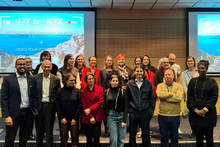

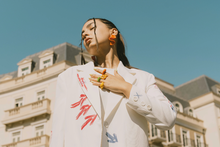
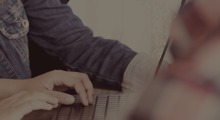
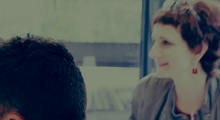
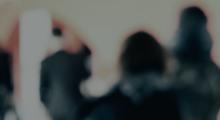
0 Comment
You must be logged in to leave a comment.
No comment